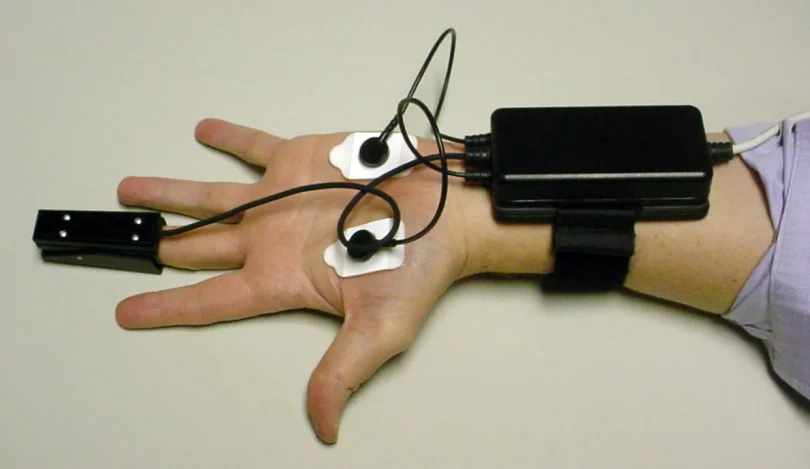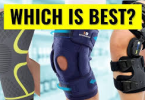Introduction to Polygraph Testing
In a world where the truth can often be elusive, the polygraph test—commonly referred to as the lie detector test—has emerged as a tool aimed at uncovering deception. Despite being controversial and widely debated, polygraph testing continues to be used across various sectors, including criminal investigations, pre-employment screenings, and even civil matters. In South Carolina, as in many other U.S. states, the use of polygraph testing raises a number of questions: How reliable is it? Who administers these tests? And are the results legally binding? This article delves deep into the science, application, and legal landscape surrounding lie detector tests in South Carolina, while exploring the broader context of polygraph testing in general.
What Is a Polygraph Test?
A polygraph is a device used to measure and record physiological indicators such as blood pressure, heart rate, respiration, and skin conductivity while a person answers a series of questions. The basic premise is that when a person tells a lie, they experience a certain level of psychological stress, which in turn causes measurable changes in these physiological functions. A polygraph examiner analyzes the patterns in this data to assess whether the subject is being truthful or deceptive.
During a polygraph test, the examiner asks a series of pre-determined questions—some relevant to the investigation and others used as control or baseline questions. The subject is connected to the polygraph instrument via sensors attached to their chest, fingers, and sometimes arm or leg. The results are graphed in real-time and later interpreted by the examiner. It’s important to understand that the polygraph doesn’t actually detect lies per se—it records physical responses that may or may not correlate with dishonesty.
The History and Evolution of Polygraph Testing
The polygraph test has been around for over a century, with its origins dating back to the early 20th century. John Augustus Larson, a medical student at the University of California, is credited with developing the first practical lie detector in 1921. Since then, the polygraph has undergone multiple refinements in terms of both technology and methodology.
Originally used primarily in criminal investigations, polygraph tests have expanded into other areas such as employment screening for sensitive government roles, background checks, and even family law cases. Technological advancements have allowed for more accurate measurements and digitized analysis, although the core principle—monitoring physiological reactions to questions—has remained unchanged.
Polygraph Use in South Carolina
lie detector test inSouth Carolina, lie detector tests are used in both public and private sectors, albeit with certain legal and procedural constraints. Law enforcement agencies may employ polygraph tests during criminal investigations as a supplementary tool to verify witness statements or suspect confessions. However, it is crucial to note that the results of a polygraph test are not generally admissible in court under South Carolina law unless both parties involved agree to its use.
That said, many private investigators and employers in South Carolina use polygraph testing, particularly in industries where trustworthiness is paramount—such as security services, law enforcement training academies, and government contracting. Employers who want to use polygraphs must comply with the Employee Polygraph Protection Act (EPPA), a federal law that severely limits the use of lie detector tests in the private employment sector, with certain exceptions.
Legal Framework and Admissibility in South Carolina Courts
One of the most significant questions regarding polygraph testing in South Carolina is its legal admissibility. The general rule in South Carolina is that polygraph test results are inadmissible in criminal trials unless both the prosecution and the defense agree to introduce them. This aligns with the position taken by many other states and is based on the argument that polygraph tests are not scientifically foolproof and may mislead a jury.
In civil cases or administrative proceedings, such as employment disputes or internal investigations, polygraph test results may carry more weight, although they still remain subject to interpretation and scrutiny. South Carolina courts have historically been cautious in relying on polygraph evidence due to concerns over its reliability, the subjective nature of result interpretation, and the potential for psychological manipulation.
Reliability and Criticisms of Polygraph Testing
One of the most contentious issues surrounding polygraph tests is their accuracy. Studies have shown mixed results, with accuracy rates ranging from 70% to 90%, depending on the conditions under which the test is administered and the skill of the examiner. Critics argue that polygraph tests are vulnerable to false positives and false negatives, particularly in individuals who are naturally anxious or, conversely, skilled at controlling their physiological responses.
There is also the risk of countermeasures, where individuals deliberately try to skew the test results by controlling their breathing, tensing muscles, or using mental distractions. Moreover, the test is not effective on individuals with certain medical or psychological conditions that affect heart rate or emotional response, such as anxiety disorders or psychopathy.
Despite these criticisms, proponents argue that polygraphs are a useful tool for guiding investigations and can help narrow down suspects or verify key details. They emphasize that the polygraph is not a standalone tool but should be used in conjunction with other investigative techniques.
Who Can Administer Lie Detector Tests in South Carolina?
In South Carolina, licensed polygraph examiners conduct lie detector tests, typically following guidelines set by the American Polygraph Association (APA) and the state’s own regulatory bodies. To become a licensed polygraph examiner in South Carolina, candidates must complete an accredited training program, undergo a period of supervised practice, and pass a certification exam.
Most reputable polygraph professionals in the state are members of organizations such as the APA or the American Association of Police Polygraphists (AAPP), which set ethical and procedural standards. The South Carolina Law Enforcement Division (SLED) may also have jurisdiction over licensing and regulation of polygraph examiners employed in law enforcement agencies.
Before undergoing a polygraph test, individuals are usually given a pre-test interview to explain the procedure, ensure informed consent, and review the questions. This step is crucial in maintaining the integrity and fairness of the test, particularly when the results could have significant personal or legal consequences.
Applications of Polygraph Tests in South Carolina
The use of polygraph testing in South Carolina is diverse and can be found in the following areas:
- Criminal Investigations – Law enforcement agencies use polygraph tests to support investigations, particularly when dealing with conflicting witness statements or questionable confessions.
- Pre-employment Screening – Some government and private security positions require candidates to undergo polygraph testing, particularly where national security or sensitive information is involved.
- Internal Workplace Investigations – In certain cases permitted by the EPPA, employers may use polygraph tests to investigate theft, fraud, or misconduct.
- Family Law and Civil Disputes – While rare, polygraph results may be used informally to support claims in divorce or custody cases, especially when trustworthiness is in question.
Ethical Considerations and the Future of Polygraph Testing
The ethical implications of using polygraph tests—especially in employment and legal contexts—cannot be overlooked. Critics argue that even the suggestion of undergoing a lie detector test can create undue stress and bias, potentially infringing on an individual’s rights. There’s also a concern that polygraphs may be used coercively, particularly by employers or investigators unfamiliar with the nuances of proper polygraph procedure.
As technology advances, new forms of truth verification are being explored, such as brainwave monitoring (EEG-based tests), voice stress analysis, and functional MRI (fMRI). While these alternatives promise higher accuracy, they are still in experimental stages and raise even more profound ethical and legal questions.
Nevertheless, the polygraph remains a mainstay in many investigative practices, and its use in South Carolina continues to reflect the delicate balance
Location South Carolina
- Columbia – 1320 Main St, Columbia, SC 29201
- Rock Hill – 331 East Main Street, Rock Hill, SC 29730
- Greenville – 220 N Main St NOMA Tower, Greenville, SC 29601
- Charleston – 170 Meeting St, Charleston, SC 29401
- Hilton Head – 32 Office Park Rd, Hilton Head, SC 29928
Conclusion: Weighing the Value of Lie Detector Tests in South Carolina
The lie detector test in South Carolina occupies a complex space where science, law, and ethics intersect. While the polygraph can offer valuable insights and support investigative processes, it is not a definitive tool for determining truth. The state’s cautious approach to admissibility reflects broader national concerns about the reliability and fairness of polygraph testing.
Whether you’re a job applicant, a law enforcement professional, or someone involved in a legal dispute, understanding the role and limitations of the polygraph in South Carolina is essential. Always ensure that any polygraph examination you undergo is conducted by a licensed and ethically trained examiner, and be aware of your legal rights before consenting to the test. In the end, while a polygraph can be a powerful aid, it is just one piece in the larger puzzle of truth-seeking and justice.








